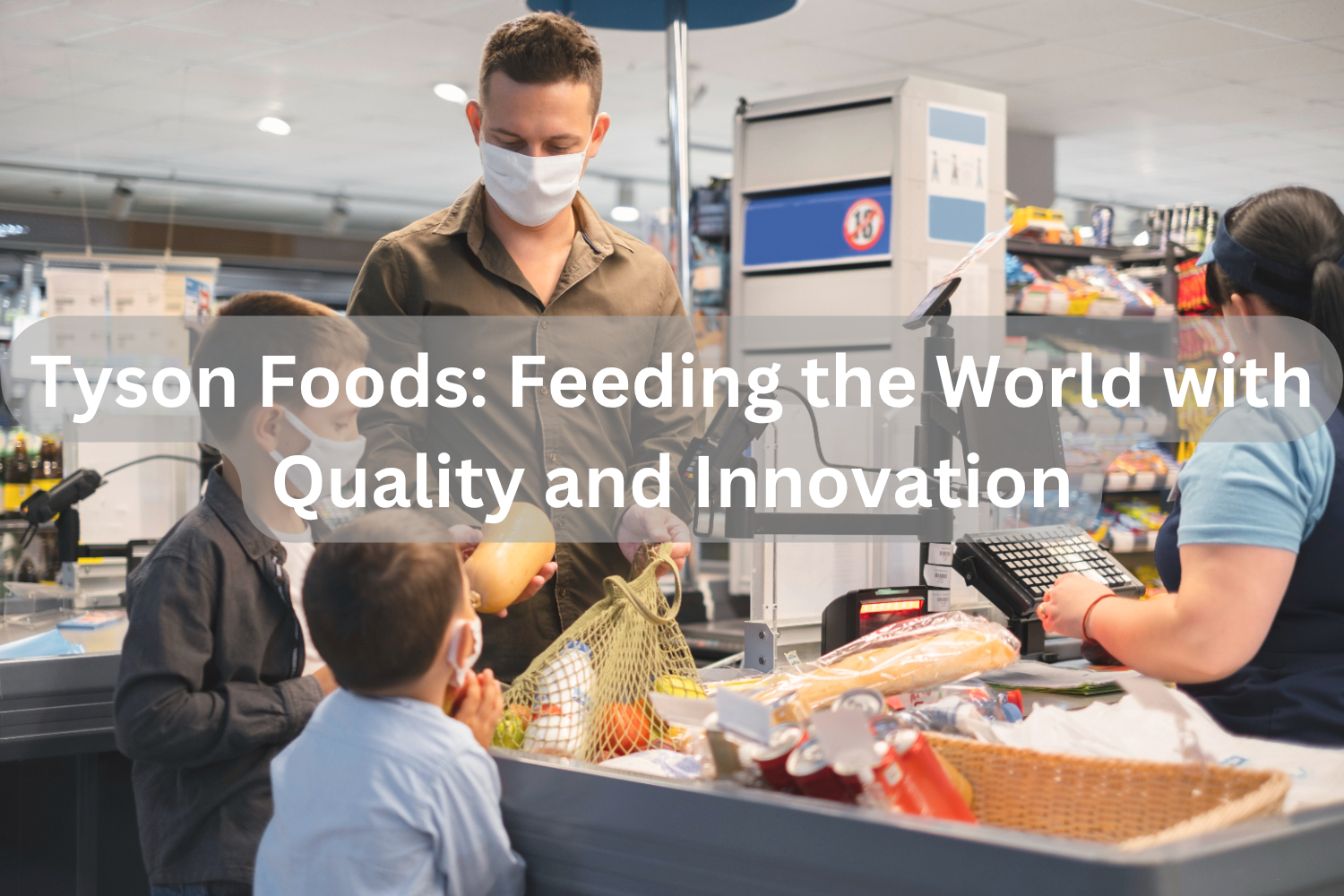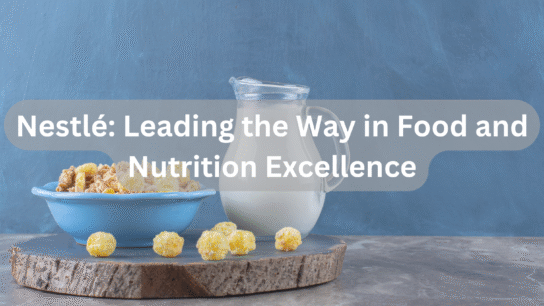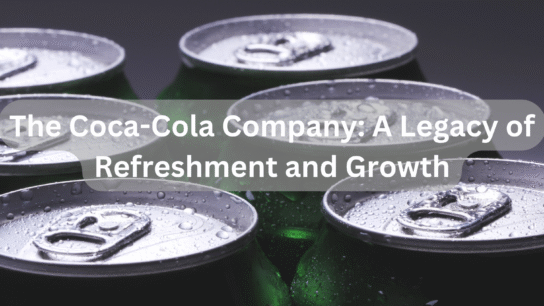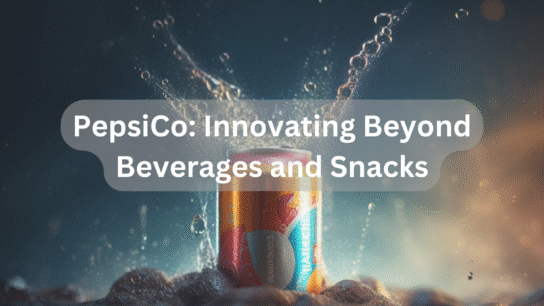Introduction to Tyson Foods
Few companies have been as impactful at feeding the world and few companies resonate as much like Tyson Foods. This American multinational was founded in 1935, by John W. Tyson who started a small poultry, that grew into one of the largest food companies in the world. It’s become a household name thanks to its commitments to high quality nutritious food. What really sets them apart though? It’s because of their constant want to innovate and provide high quality that has kept them in the food industry for nearly 100 years.
A Brief History of Tyson Foods
It began in the heart of America, Springdale, Arkansas. The story of a diversified food giant beginning from a small poultry processing company. From the beginning, fresh chicken products were the company’s ticket to short term success, but over time Tyson has diversified their menu with offerings that range from beef and pork to ready to eat meals and plant based protein.
Tyson Foods now works in 100 countries and has over 130,000 employees worldwide. The company’s name mega brands include Jimmy Dean, Hillshire Farm and Ball Park, all come with vast following in kitchens around the world.
The Core Values Behind Tyson Foods
Tyson Foods embodies quality, innovation, sustainability, at the heart of the company. The company’s mission is clear: “Growing the fastest growing protein-packed foods portfolio to feed the world.” Tyson Foods takes seriously its commitment to responsible food production and the welfare of people and the environment.
Tyson Foods’ Global Impact
Tyson’s Role in Feeding the World
Increasing global population make food of high quality more important than ever. Tyson Foods is a driver in filling this demand by supplying a comprehensive portfolio of protein rich products, feeding millions each day. Tyson is a major part of the global food supply chain, whether supply is in the chicken, beef, pork, or plant based alternatives.
Environmental Responsibility and Sustainability
Tyson Foods feeds people, yes, but its also focused on feeding the planet in a sustainable way. It has vastly cut back on its envirnmental pawprints. Tyson Foods understands that a sustainable food system is about much more than improving water and energy efficiency or sourcing responsible ingredients.
Meanwhile, Tyson Foods is also plowing money into renewable energy and has promised to lower its greenhouse gas emissions. The company endeavors to reduce its environmental impact by employing sustainable farming practices and investigating alternative sources of protein that will meet the growing demand for food.
Tyson Foods’ Product Line
Poultry Products: From Chicken to Turkey
First out of people’s minds when they think of Tyson Foods will always be poultry—and for the right reasons. Tyson is a big producer of chicken. Tyson’s products range from traditional cuts of chicken to pre cooked or frozen products and are recognized by the quality and versatility.
Turkey products are also produced by the company and are much liked during the holiday time. Tyson understands that this means, not only turkey, but turkey from a whole bird or sausage, must be compiled with care in order to meet accepting high standards.
Beef and Pork Offerings
Tyson Foods is most known for chicken, but it also does a great deal of work in beef and pork. The firm sells many different types of beef in the forms of steaks, ground beef and pork products like bacon and sausages.
Tyson foods holds rigorous standards during the production process to keep similar standards in their promise to consumers of fresh and flavorful products.
Value-Added Products and Ready-to-Eat Meals
Tyson Foods also offers value added products aside from fresh meats that make consumers mealtime easier. Tyson offers many convenient and busy household products such as frozen dinners and fully cooked chicken strips. Tyson is a go to brand for convenient ready to eat meals that are no less than satisfying, saving you time with meals that are a lot tastier than some home made meals.
Plant-Based and Alternative Proteins
With consumers adopting more plant based diets, Tyson Foods has done just that by providing plant based protein alternatives. Tyson’s line of plant based products includes all plant based burgers, nuggets and patties, making for a healthier and more sustainable option for people looking to lower their meat intake.
However, as the trend for plant based diets continues to grow, Tyson Foods is now changing with the market in order to support all food preferences.
Tyson Foods’ Commitment to Innovation
Advancements in Food Technology
To this day, innovation plays one of the country’s biggest parts in Tyson foods success. In order to deliver better and better production quality, greater efficiency processing, and even offer exciting new products to meet the needs of its consumers, the company continually invests in food technology.
Tyson Foods is now swimming in all things food science, whether it’s new cooking methods or new ingredients.
Tyson Foods’ Digital Transformation
Today data and technology are an important part of the food industry. However, Tyson Foods has supplemented big data and artificial intelligence to shape digital transformation for its day to day operations. Through the use of technology, Tyson is able to monitor its products through every level of the supply chain so that it can be certain its products are of the best quality and delivered to those who need them on time.
Partnerships with Innovative Startups
Tyson Foods also collaborates with innovative startups to explore new ideas and technologies. By working with cutting-edge companies, Tyson stays ahead of industry trends and gains access to the latest advancements in food production and processing.
Tyson Foods’ Sustainability Practices
Reducing Environmental Footprint
The future of food production has to be sustainable, and Tyson Foods knows this. The Green Sustainability targeted goals of the company are to reduce greenhouse gas emissions, increase water conservation and reduce waste. Sustainable farming is another area where Tyson works with farmers and suppliers to make sure its products can be safely guarded.
Sustainable Farming Practices
The starting point of sustainability is the farm level. To promote good practices for animals that benefit the environment, we work closely with farmers. The regenerative farming techniques that the company is introducing, including crop rotation and lower use of pesticides is intended to help preserve the land for future generations.
Waste Reduction and Recycling
Waste reduction is another key area in which Tyson engages its sustainability efforts. The company has cut down on its food waste in its production facilities greatly and massive parts of their waste are recycled and repurposed. Tyson has pledged to cut landfill waste and make its packaging more sustainable.
Tyson Foods and Social Responsibility
Supporting Communities and Charitable Initiatives
In addition, Tyson Foods takes responsibility to its communities seriously. The company has a long history of doing charity like donating millions of meals to those in need. In addition, Tyson supports local food banks and disaster relief organizations in placing nutritious food in the hands of those in crisis.
Commitment to Animal Welfare
Tyson Foods cares deeply about animal welfare. The company has a commitment to ensure that animals are treated humanely from the time they leave the farm until they reach the table. Tyson collaborates with animal welfare organisations to establish and develop good animal handling and care practices.
Tyson Foods: Challenges and Opportunities
Navigating the Global Supply Chain
Tyson Foods operates globally and has many challenges to manage its global supply chain. Tyson has been put to the test to maintain product availability with disruptions to the supply chain, like we have seen with the COVID-19 pandemic. But Tyson has adapted to an ever changing global market and proved resilient.
Embracing Future Trends in Food Production
The within is changing within the future of food production. It ranges from a lab grown meat to a sustainable packaging and Tyson Foods must remain ahead of the emerging trends to continue their position of average to above average. Tyson is placing big bets on research and development in order to meet the changing needs of consumers.
Conclusion: The Future of Tyson Foods
Today, Tyson Foods is a leading food production player today; it has come a distance from the ground up. Tyson Foods’ commitment to quality, innovation, and sustainability position the company well to feed the world for years to come. Using adapting to new technologies, customers preference and sticking with social responsibility, Tyson will continue on the food industry for many years.
Frequently Asked Questions
Q: What makes Tyson Foods a leader in the food industry?
A: Tyson Foods leads the food industry due to its commitment to quality, innovation, and sustainability. It produces a wide variety of protein-rich products, from poultry to plant-based alternatives, while continually adapting to market trends and consumer demands.
Q: How is Tyson Foods contributing to sustainability?
A: Tyson Foods is committed to reducing its environmental footprint by focusing on renewable energy, waste reduction, and sustainable farming practices. It also strives to reduce greenhouse gas emissions and improve water and energy efficiency.
Q: What are Tyson Foods’ most popular products?
A: Some of Tyson Foods’ most popular products include their chicken cuts, Jimmy Dean sausages, Hillshire Farm deli meats, and Ball Park hot dogs. They also offer a range of plant-based products for consumers seeking alternative proteins.
Q: How is Tyson adapting to plant-based food trends?
A: Tyson Foods has embraced plant-based food trends by offering meatless products such as burgers, nuggets, and patties. The company is investing in alternative protein sources to meet the growing demand for plant-based options.
Q: What community initiatives does Tyson Foods support?
A: Tyson Foods supports various community initiatives, including donating millions of meals to food banks, disaster relief efforts, and charitable organizations. The company is committed to helping those in need through its extensive philanthropic programs.





